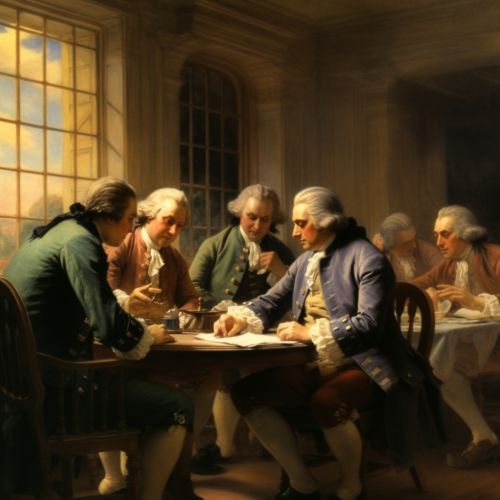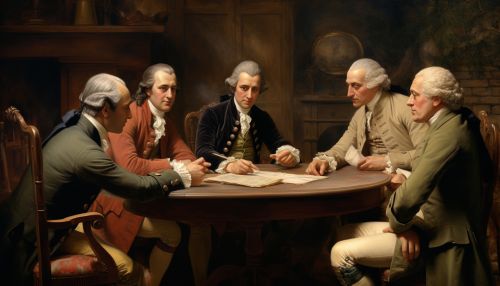Federalist Party (United States)
Origins and formation
The Federalist Party was one of the first two political parties in the United States, and thus its origins are tied directly to the formation of American political discourse. After the Constitution was ratified in 1788, a more robust national government was established, but there was significant disagreement over the direction of American policy. The Federalist Party was born out of this political discord, primarily from the supporters of a strong national government and commercial economy. These individuals, including Alexander Hamilton, John Adams, and John Jay, were instrumental in shaping the party's early ideology and political strategy.


Ideology and policies
The Federalists were strong advocates of a centralized federal government, believing that a strong national government was necessary to provide stability and order in the young nation. They were also proponents of a balanced economy, supporting both agriculture and commerce. The Federalists were known for their support of a national bank, a strong navy, and a protective tariff to support American manufacturers. They also believed in a loose interpretation of the Constitution, which allowed for a broad range of federal powers.
Influence and accomplishments
Despite their relatively short existence as a dominant political party, the Federalists had a significant impact on early American politics. Their policies helped shape the economic and political landscape of the young nation, and their influence can be seen in the strong central government and commercial economy that exists today. The Federalists were also responsible for the ratification of the Constitution, the establishment of a national bank, and the peaceful transfer of power from one political party to another in the Election of 1800.
Decline and dissolution
The Federalist Party began to decline after the War of 1812, when their opposition to the war was seen as unpatriotic. The party was further weakened by internal divisions and the rise of the Democratic-Republican Party. By the 1820s, the Federalist Party had effectively dissolved, although its influence continued to be felt in American politics.
Legacy
The Federalist Party's legacy is evident in many aspects of modern American government and politics. The party's belief in a strong central government and a balanced economy has been incorporated into the platforms of many modern political parties. Additionally, the Federalist Party's support for a loose interpretation of the Constitution has influenced many subsequent interpretations of the document.
